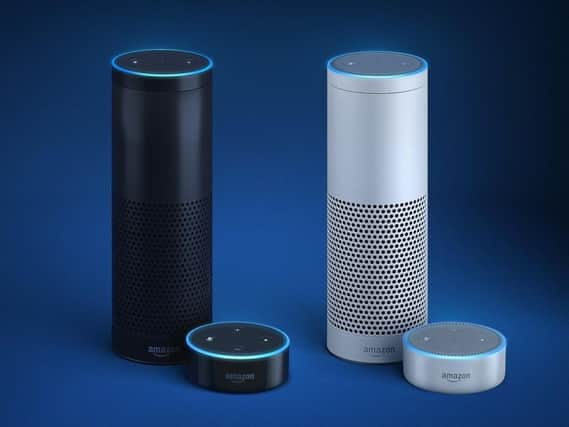Amazon Alexa's voice can leave dementia patients 'deeply distressed'


While voice-controlled digital helpers, which also include Google Assistant and Apple's Siri, have become commonplace in homes, they don't necessarily accommodate for users with disabilities or illness.
Spoken reminders to take medication can cause distress to people with dementia, while people who have had a stroke or have learning disabilities may not be able to formulate questions in the way the assistants' AI understands, a report from Doteveryone, a think tank promoting responsible tech, claimed.
Advertisement
Hide AdAdvertisement
Hide AdWhile voice-controlled digital helpers, which also include Google Assistant and Apple's Siri, have become commonplace in homes, they don't necessarily accommodate for users with disabilities or illness.
Spoken reminders to take medication can cause distress to people with dementia, while people who have had a stroke or have learning disabilities may not be able to formulate questions in the way the assistants' AI understands, a report from Doteveryone, a think tank promoting responsible tech, claimed.
Enablement Panels run by and for disabled people, carers and their families could also help to combat society's ageist and able bodied-focused culture, the report suggested.
Martha Lane Fox, technology entrepreneur and executive chair and founder of Doteveryone, said failings in our current care system were "too heartbreakingly apparent".
"Too often technology and humanity are placed in opposition to one another. At its worst, technology turns people, and all the wonderful messy complexity of their lives, into a mechanised list of jobs to be done as fast and as cheaply as possible," she said.
"It doesn’t have to be that way. Automation need not preclude empathy. By putting the needs, skills, and relationships of the people who care, and people who rely on care, at the heart of decisions, technology can support all of us to create a better care system."
Around 30 per cent of work currently carried out by adult social care staff could be carried out by machines, at and estimated saving of £6bn to the economy, according to the Institute of Public Policy Research.
However, technology must be deployed responsibly to avoid affecting the quality of care patients receive, the report added.